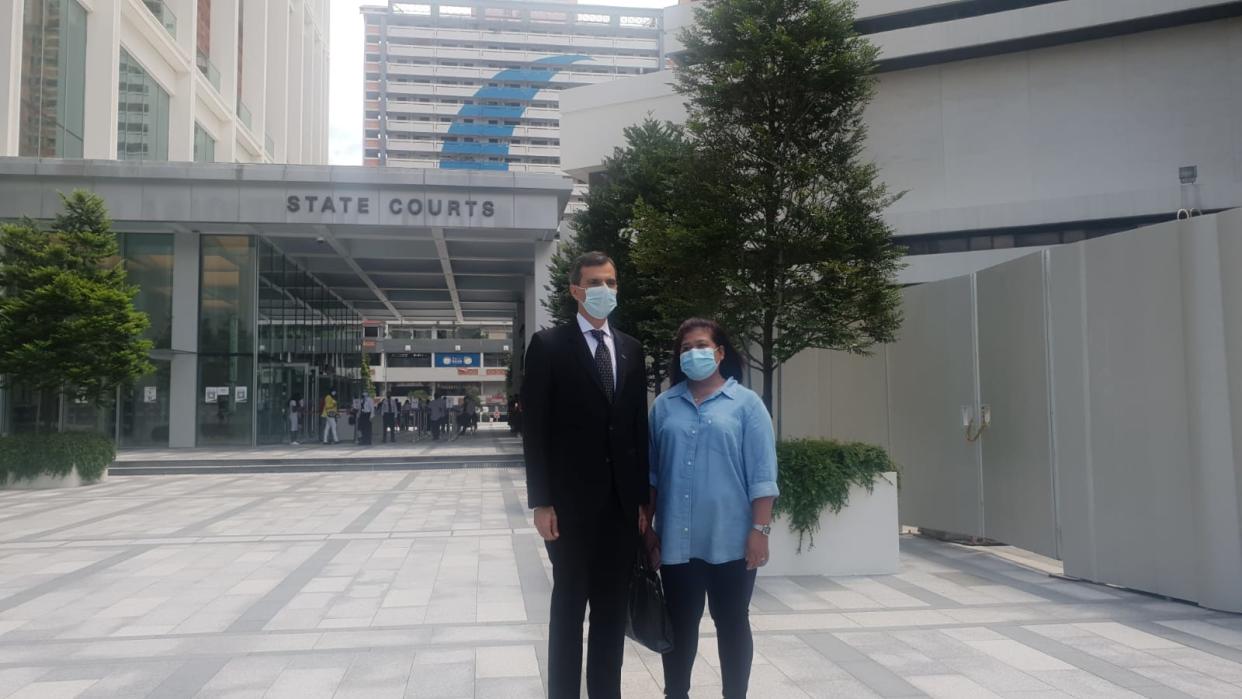Pro-bono services in the spotlight: access to justice for the indigent

SINGAPORE — The recent high profile acquittals of an Indonesian maid accused of theft and a Nigerian man accused of trafficking drugs, both of whom were represented by pro bono lawyers, along with the death of the founding chairman of the Law Society’s Criminal Legal Aid Scheme (CLAS), has thrust this group of lawyers into the spotlight once more.
The latin phrase “pro bono publico” means for the public good, and pro bono lawyers volunteer to represent accused persons who are unable to afford a lawyer.
On Thursday (17 September), Nigerian Ilechukwu Uchechukwu Chukwudi was freed from remand after nine years, having previously been convicted of drug trafficking after a series of twists and turns at the Supreme Court. He was represented by pro bono lawyers Eugene Thuraisingam, Suang Wijaya and Johannes Hadi.
Separately, Indonesian domestic helper Parti Liyani was on 4 September acquitted by the High Court of four charges of stealing from the family of former Changi Airport Group chairman Liew Mun Leong, having previously been convicted by a district court in March last year. She was represented by pro bono lawyer Anil Balchandani, who was approached to take the case by non-profit Humanitarian Organisation for Migration Economics.
Meanwhile, prominent lawyer Senior Counsel Harry Elias died last month, his name “inextricably linked” to CLAS which “provides access to justice for the indigent”, said Law Society president Gregory Vijayendran. He added that Elias’ greatest legacy, as CLAS’ founding chairman, was giving “justice to the weakest in society”.
What are the available pro bono schemes?
The State provides pro bono lawyers through two main schemes. Under the Legal Assistance Scheme for Capital Offences (LASCO), all accused persons facing capital charges in the High Court are offered free legal representation by the State. There is no means testing or eligibility criteria imposed. Two lawyers are usually offered to the accused person.
Meanwhile, to qualify for legal representation under CLAS, which covers some non-capital offences, there is both means testing as well as merits testing; whether an accused person is assigned a lawyer depends on the merits of the case.
Approved applicants may need to bear a co-payment amount, depending on the person’s means. CLAS comes under the purview of the Law Society Pro Bono Services Office, a registered charity.
Aside from these schemes, there are numerous free legal clinics where basic legal advice and information is provided by non-profit organisations and the government to those who need them.
Why are pro bono lawyers so important?
Speaking at a ceremony last month to admit new lawyers to the Singapore Bar, Chief Justice Sundaresh Menon reiterated the importance of access to justice.
He said, “There is an important relationship between unequal access to justice and socio-economic inequality, which is one of the great challenges of our times and indeed one that the pandemic has brutally exposed in many societies.
“Unequal access to justice fosters asymmetry in the ability to vindicate rights. This perpetuates and worsens the socio-economic disequilibrium, which in turn reinforces disparities in the ability to access and afford essential legal services,” he added.
This is a vicious cycle that lawyers can play an important role in ending, said the chief justice.
In his speech, CJ Menon also encouraged new lawyers to undertake pro bono services, “both as an essential part of your learning and development as well as a means by which you can give back to society and stay rooted to the reason you came to the law.
“Now more than ever, pro bono services will be critical in supporting access to justice for those who cannot afford it...In the giving of your time, efforts, and skills to the most vulnerable members of society, you will not only find your lawyering skills sharpened, but also enjoy some of the most memorable and meaningful engagements in your professional lives,” he added.
Parliamentary debate on access to justice
Parti’s case caused what People’s Action Party (PAP) Member of Parliament (MP) Tan Wu Meng called “deep disquiet” and he has submitted parliamentary questions in relation to the case for the next sitting. Among other things, Tan is asking Law and Home Affairs Minister K. Shanmugam what proportion of foreign domestic workers charged, convicted and acquitted of theft from their employers had legal representation.
Other PAP MPs – Murali Pillai, Vikram Nair and Yeo Wan Ling – have also filed parliamentary questions on the case.
Shanmugam will deliver a ministerial statement on Parti’s case in Parliament.
Meanwhile, Workers’ Party MP Sylvia Lim has filed an adjournment motion regarding Parti’s case when Parliament meets again. The motion is entitled “Justice For All: Enhancing Equity in the Criminal Justice System” and will make reference to the “deeper issues” raised by Parti’s case.
Stay in the know on-the-go: Join Yahoo Singapore's Telegram channel at http://t.me/YahooSingapore
Related stories:
Nigerian man, once facing death penalty in Singapore, walks free after 9 years in remand
Changi Airport Group chairman Liew Mun Leong's maid acquitted of theft: High Court
Parti Liyani case: Acquitted maid's pro-bono lawyer lauds NGOs for giving migrant workers hope
Top Singapore lawyer Harry Elias dies at 83
More young lawyers in Singapore giving free legal services
9 Legal Clinics Which Offer Free Legal Advice in Singapore
Shanmugam to make ministerial statement on Parti Liyani case in Parliament
Parti Liyani case: Workers' Party chair Sylvia Lim files parliamentary motion



